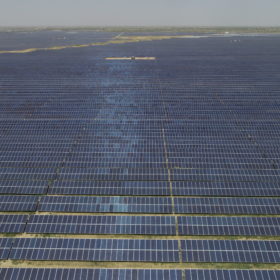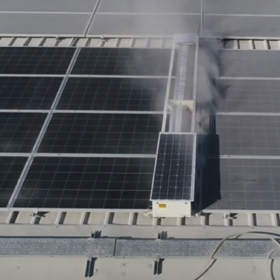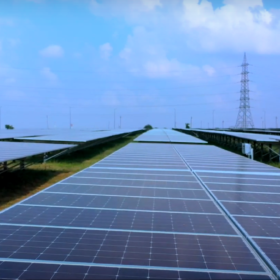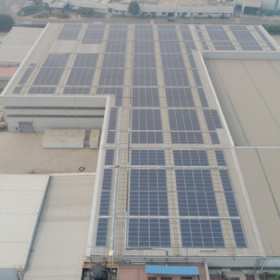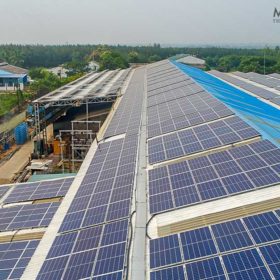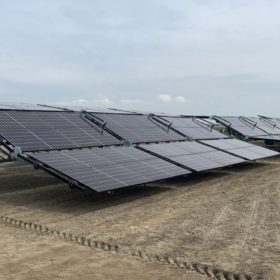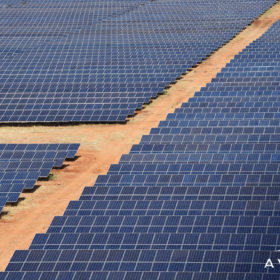New renewable capacity additions doubled in FY 2022
India installed 15.5 GW of non-hydro renewable energy capacity in fiscal 2021-22, from just 7.7 GW installed in the preceding fiscal year. About 90% of the total, or 13.9 GW, came from solar.
Indian solar market leaders in 2021
ReNew Power was the top utility-scale solar developer in 2021, commissioning the largest amount of capacity. Tata Power Solar led in rooftop solar installations, accounting for 20% of total annual additions.
India to lead new energy wave
A new report from the Institute for Energy Economics and Financial Analysis (IEEFA) tracks key trends at major companies across India’s power sector value chain. It finds the nation is poised to lead the clean energy wave, with investors committing in response to the bold policies that are enabling the transition.
Self-powered, dry-cleaning robot for solar panels
Enray Solutions has developed an autonomous, water-free cleaning robot for ground-mount solar installations that draws its power from an on-board PV panel and battery. The robot is designed to withstand the harsh environmental conditions of all kinds of terrain.
ReNew Power signs PPAs for 2 GW
NASDAQ-listed ReNew Power has signed power purchase agreements for 1.5 GW of new utility-scale PV capacity in Rajasthan. It will also build around 0.5 GW of renewables for corporate customers.
Cleantech Solar commissions 625 kWp rooftop solar plant for Yachiyo India
The solar project was executed in just 59 days from the signing of the power purchase agreement (PPA) to commissioning.
India’s race to 175 GW renewables slowed by performance of key States
A new report finds Andhra Pradesh, Madhya Pradesh, Maharashtra, Tamil Nadu, and Uttar Pradesh account for two-thirds of India’s 65 GW shortfall on 175 GW renewable energy target as of March 2022.
Delhi discom deploys digital data platform for solar energy management
BSES Yamuna Power Limited has deployed a digital solution pilot project that predicts the energy demand at consumption points like electric vehicle charging stations and energy generation capacity at solar rooftops. This will help the utility plan to store excess energy by considering the distribution congestion and commercial aspects.
Mobile agrivoltaic system from the Netherlands
Created by a Dutch group of companies and research institutions, the mobile solar system may also be combined with an electrolyzer for hydrogen generation. Two prototypes are currently being tested by a farmer and a research institute in the Netherlands.
Linde raises 26% stake in 32.5 MW solar plant for self-consumption
The captive solar plant is developed by Avaada Group through a special purpose vehicle called Avaada MHYavat. The solar electricity generated will power energy-intensive air-separation operations of the industrial gas producer.
